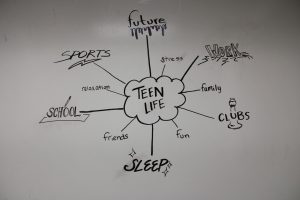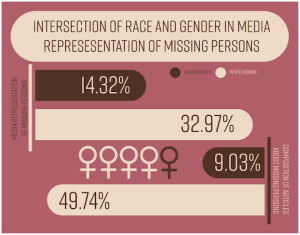AP/Honors Performing Arts Credits
March 25, 2019
There is a fundamental difference in how we treat academics and audition/application based classes that creates a sense of insignificance placed on the latter classes. For many classes and departments, there are multiple chances to advance into AP/Honor classes. All the core subjects have multiple AP and Honor classes that you can take from Freshman to Senior year. Visual Arts includes AP Photography, AP Art History, and AP Studio Art. World languages and business also have opportunities to take advanced classes that add to student’s GPA.
Audition based performing arts classes do not have the same opportunity. Dance Company, Training Company, Jazz Choir, Madgicals, and Harlequin are all audition based. These classes are the top classes someone can get into at Eaglecrest, and being a part of these groups signifies a true talent that prepares students to continue performing in college. None of these classes are weighted, and students GPAs drop because they pursue these passions over academics. Classes such as Student Council, Speech and Debate, AVID, Newspaper, Yearbook, and Raptor TV are also unweighted.
However, the time commitment of those classes and performing arts classes is very similar to what is done for AP/Honors classes. For one show, cast and crew spends 4 hour days, everyday, for two and a half months in preparation. Dance Company and Training Company work everyday, along with a six hour rehearsal, for shows each semester. Both shows are entirely student choreographed and many people take hours outside of school to create dances. AVID prepares students for college, yet taking the class drops students cumulative GPA by .200 points. Student Council spends hours planning events, dances, and how to effectively lead our student body. If a student is working the same amount in an AP/Honors class and a performing arts class, the weight of the grade should be the same. When looking to the future, GPA is crucial in deciding where someone can go to college. One should not have to focus purely on academics in high school in order to get into a good college. Interests and passions shape our lives and while many people choose a college based on their interests, a student should not have to choose between academics and what they like to do.
Anna Ames, a junior, states, “I had a 4.67 last semester, but would have had a 4.83. Next year I’d have a 5.00 if not for Harlequin.” While the effect is small in Ames’ case due to her high GPA, it is a conscious choice based on doing what she loves. When asked if she ever considered dropping Harlequin she adds, “If I were really trying to be Valedictorian I would, but the class is too important to me.” There are many students that face this dilemma. A usual Valedictorian only takes Honors/AP because extra electives take away from one’s cumulative GPA. Out of the 10 people that shared their GPA with me, with and without electives tailored to their passions, 10 had increased GPA’s and only two said they considered not taking their elective for a higher GPA. Kids are not going to stop taking classes they love. It’s not worth the higher GPA if they can’t do what they want.
There are more than one area one can be skilled in. Academics has been deemed the most important area, and students are identified gifted in core subjects in elementary school. However, gifted identification in elementary school has recently been extended and distinguishes Specific Academic Aptitudes from Specific Talent Aptitudes. Creative/productive thinking, dance, leadership, music, performing arts, visual arts, and psychomotor fit in the latter category and are all areas one can now be gifted in. If elementary schools must test for these areas by Colorado State Standards, these areas should be included as weighted classes in high school.
While many students will continue to choose their passions over their GPA, they shouldn’t have to choose at all. High school is a time of growth and exploration for teenagers as they prepare for college and work. Because of this, an equal amount of value should be placed on academics and application/audition based classes. Pressure stems from this lack of equilibrium in order to succeed. Success cannot be defined as singular in nature. There are many different ways to succeed, and all students should be able to prove that without having to worry about fitting into a narrow academic field.






